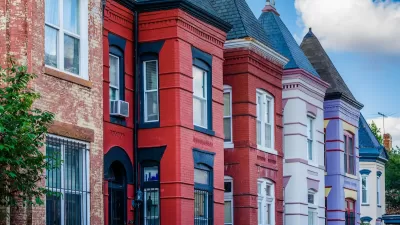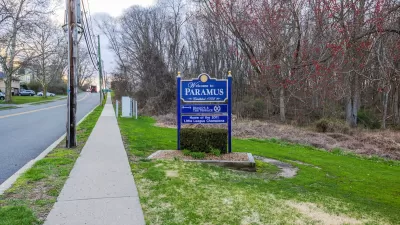Residents of co-living developments say the built-in community helps ease the growing isolation felt by many Americans.

Co-housing (also known as coliving) is becoming popular with more American households, with nearly 200 co-housing communities existing around the country. In an NPR article, Katia Riddle explains why some people favor the benefits of shared spaces and living arrangements.
In most cases, co-housing is more affordable for residents than other options. “But many also say that they've found a way to conquer the loneliness and isolation that plagues so many Americans — especially today's parents.”
However, the still-unconventional nature of the co-housing model makes it difficult to build in many U.S. communities. “The barrier to entry to build a cohousing development can be high, as this kind of new construction is subject to the same market dynamics as any new building,” Riddle adds.
Recognizing the need for more diverse housing options, some states and cities, such as Seattle, are moving to ease land use and building restrictions on co-living developments.
FULL STORY: How to be not lonely? 'Cohousing' is an answer for some people

Maui's Vacation Rental Debate Turns Ugly
Verbal attacks, misinformation campaigns and fistfights plague a high-stakes debate to convert thousands of vacation rentals into long-term housing.

Planetizen Federal Action Tracker
A weekly monitor of how Trump’s orders and actions are impacting planners and planning in America.

Chicago’s Ghost Rails
Just beneath the surface of the modern city lie the remnants of its expansive early 20th-century streetcar system.

Bend, Oregon Zoning Reforms Prioritize Small-Scale Housing
The city altered its zoning code to allow multi-family housing and eliminated parking mandates citywide.

Amtrak Cutting Jobs, Funding to High-Speed Rail
The agency plans to cut 10 percent of its workforce and has confirmed it will not fund new high-speed rail projects.

LA Denies Basic Services to Unhoused Residents
The city has repeatedly failed to respond to requests for trash pickup at encampment sites, and eliminated a program that provided mobile showers and toilets.
Urban Design for Planners 1: Software Tools
This six-course series explores essential urban design concepts using open source software and equips planners with the tools they need to participate fully in the urban design process.
Planning for Universal Design
Learn the tools for implementing Universal Design in planning regulations.
planning NEXT
Appalachian Highlands Housing Partners
Mpact (founded as Rail~Volution)
City of Camden Redevelopment Agency
City of Astoria
City of Portland
City of Laramie





























